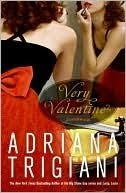Just Don't Call Me Ma'am: How I Ditched the South, Forgot My Manners, and Managed to Survive My Twenties with (Most of) My Dignity Still Intact
Paperback, 256 Pages
Seal Press, April 2010
Source:
I received a copy of this book from Newman Communications in exchange for my review.
Seal Press, April 2010
Source:
I received a copy of this book from Newman Communications in exchange for my review.
Summary from the publisher's website:
Anna Mitchael is like a lot of twentysomething women with full lives. In her fast-moving world, she might be called on as a friend, coworker, daughter, girlfriend, confidante, brat, cynic, or domestic-goddess-in-training. But there’s one label she’s simply not ready to embrace: ma’am.
Like so many bright-eyed college graduates before her, Mitchael begins her twenties armed with the conviction that the world is hers for the taking. And she discovers that it is, mostly—only no one told her just how often she’d have to pick herself up off the floor along the way.
From moving to new cities to domestic disasters to the occasional nervous breakdown, Mitchael guides readers through the various stages of her self-discovery with disarming humor and—like the best of friends—unmitigated honesty. Written for every woman who’s experienced the ups and downs of trying to figure out who you’re really meant to be, Just Don’t Call Me Ma’am is a story of one woman and the choices that add up to be her twentysomething life—and of how sometimes you have to remember where you came from before you can figure out where you’re going.
Like so many bright-eyed college graduates before her, Mitchael begins her twenties armed with the conviction that the world is hers for the taking. And she discovers that it is, mostly—only no one told her just how often she’d have to pick herself up off the floor along the way.
From moving to new cities to domestic disasters to the occasional nervous breakdown, Mitchael guides readers through the various stages of her self-discovery with disarming humor and—like the best of friends—unmitigated honesty. Written for every woman who’s experienced the ups and downs of trying to figure out who you’re really meant to be, Just Don’t Call Me Ma’am is a story of one woman and the choices that add up to be her twentysomething life—and of how sometimes you have to remember where you came from before you can figure out where you’re going.
My Thoughts:
Just Don't Call Me Ma'am was a funny and entertaining book and Anna Mitchael most certainly has a gift for writing. I appreciated many of the stories that were told and the experiences that Mitchael shared in the memoir, however I did not feel that I was able relate to the book overall. The memoir was divided up into several sections which captured different phases of Mitchael's self-discovery. While the individual stories were funny - one in particular about an experience with a Brazilian wax was hilarious - the book didn't flow for me.
was a funny and entertaining book and Anna Mitchael most certainly has a gift for writing. I appreciated many of the stories that were told and the experiences that Mitchael shared in the memoir, however I did not feel that I was able relate to the book overall. The memoir was divided up into several sections which captured different phases of Mitchael's self-discovery. While the individual stories were funny - one in particular about an experience with a Brazilian wax was hilarious - the book didn't flow for me.
I have seen several great reviews for Just Don't Call Me Ma'am , which makes me feel that I may have been missing something. There were some sections of the story where Mitchael was retelling very personal and emotional experiences, however I felt distanced from the true feelings of the author. It seemed like much of the personal story may have been masked by trying to rely on her fantastic sense of humor.
, which makes me feel that I may have been missing something. There were some sections of the story where Mitchael was retelling very personal and emotional experiences, however I felt distanced from the true feelings of the author. It seemed like much of the personal story may have been masked by trying to rely on her fantastic sense of humor.
I very much enjoyed Mitchael's relationship with her mother in the book. I think that everyone needs a person in their life that gives them the wings that they need to grow up and be successful, and also the kick in the pants that we sometimes need to get out of a rut and move on. When I reached the acknowledgements at the end of the book, I was saddened not to see her mother mentioned, because of the strong connection that I felt for this relationship. When I flipped back and saw that the book was dedicated to her mother, I became choked up: "For my mother, who let me leave without letting me go." Perfect!
It is hard and maybe unfair to critique a memoir, because the writing is obviously core to the author. The book was by no means a failure - I had quite a few chuckles and I am happy that I read it, but I must be honest that this one just didn't work overall for my reading style.
Just Don't Call Me Ma'am
I have seen several great reviews for Just Don't Call Me Ma'am
I very much enjoyed Mitchael's relationship with her mother in the book. I think that everyone needs a person in their life that gives them the wings that they need to grow up and be successful, and also the kick in the pants that we sometimes need to get out of a rut and move on. When I reached the acknowledgements at the end of the book, I was saddened not to see her mother mentioned, because of the strong connection that I felt for this relationship. When I flipped back and saw that the book was dedicated to her mother, I became choked up: "For my mother, who let me leave without letting me go." Perfect!
It is hard and maybe unfair to critique a memoir, because the writing is obviously core to the author. The book was by no means a failure - I had quite a few chuckles and I am happy that I read it, but I must be honest that this one just didn't work overall for my reading style.








